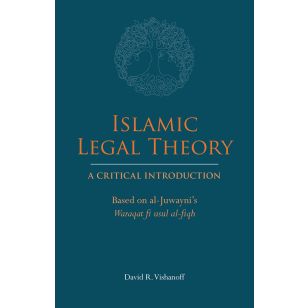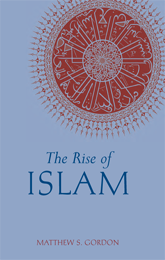Islamic Legal Theory: A Critical Introduction
David Vishanoff’s thorough and original unpacking of the Sunnī jurist al-Juwaynī’s (1028–1085) Kitāb al-Waraqāt fī uṣūl al-fiqh introduces English-speaking readers to the main concepts, terms, principles, and functions of the classical Islamic discipline of legal theory. This volume offers an ideal entry to the otherwise dense and complex mainstream Sunnī views that dominated Islamic legal thought in al-Juwaynī’s day—and that are still widely accepted today. A critical edition of al-Juwaynī’s Arabic text is also included.
"In this brilliant, innovative, and engaging book, Vishanoff guides readers through some of the most fundamental questions Muslims have debated, and struggled with, for centuries. Most Muslim scholars' books on these topics are dense and difficult. But here Vishanoff takes one such book—al-Juwaynī’s classic Waraqat—and explains, with lucidity and precision, its complex and obscure arguments. Through this book, readers will reach a better understanding of why such debates mattered to Muslims in the past, why they matter now, and how they affect the ways in which the Sharia—God’s law—might be understood in the future."
—Robert Gleave, University of Exeter
David Vishanoff’s thorough and original unpacking of the Sunnī jurist al-Juwaynī’s (1028–1085) Kitāb al-Waraqāt fī uṣūl al-fiqh introduces English-speaking readers to the main concepts, terms, principles, and functions of the classical Islamic discipline of legal theory. This volume offers an ideal entry to the otherwise dense and complex mainstream Sunnī views that dominated Islamic legal thought in al-Juwaynī’s day—and that are still widely accepted today. A critical edition of al-Juwaynī’s Arabic text is also included.
Reviews:
"In this brilliant, innovative, and engaging book, Vishanoff guides readers through some of the most fundamental questions Muslims have debated, and struggled with, for centuries. Most Muslim scholars' books on these topics are dense and difficult. But here Vishanoff takes one such book—al-Juwaynī’s classic Waraqat—and explains, with lucidity and precision, its complex and obscure arguments. Through this book, readers will reach a better understanding of why such debates mattered to Muslims in the past, why they matter now, and how they affect the ways in which the Sharia—God’s law—might be understood in the future."
—Robert Gleave, University of Exeter
"A gem! David Vishanoff ’s translation of, and commentary on, al-Juwaynī’s short treatise on legal theory is cleverly conceptualized, clearly organized, and lucidly presented. It will engage and instruct those new to the study of Islamic law while inviting specialists to appreciate, reflect on, and perhaps question its comparative and interpretive choices. Highly recommended."
—Kecia Ali, Boston University
"A wonderful and highly accessible primer on Islamic legal theory that clarifies as it enlightens. Vishanoff brings the subject to life; this book will be a valuable resource for students of Islamic law at all levels."
—Rumee Ahmed, University of British Columbia
"Islamic Legal Theory is essential reading for any course on Islamic law and the history of Islamic legal theory. The book provides not only a careful and accessible translation of Kitāb al‐Waraqāt fī uṣūl al‐fiqh, or Leaflet—a key teaching text in Islamic legal theory—but also engages in a dialogue with questions and concerns from contemporary Western thought. The nature of this book to provoke such conversations makes it an indispensable text for class discussions."
—Samy A. Ayoub, The University of Texas at Austin
About the Author:
David R. Vishanoff is Associate Professor of Religious Studies, The University of Oklahoma.









